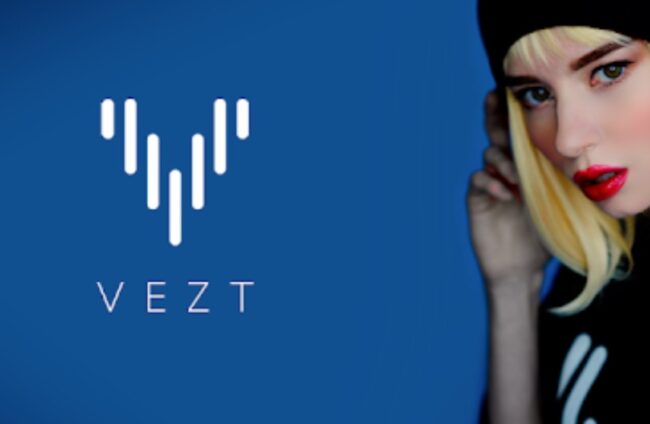The Music Industry and Blockchain

Blockchain technology has revolutionized our world in ways unimaginable. The use of distributed ledger means there’s an improved way of managing and storing data. As its name implies, any data in this ledger is shared amongst everyone in it, and its immutability means everyone can be sure of its authenticity. Editing on one end of the data reflects immediately in every other person’s copy of that data, so fraud can’t go undetected.
Although the mention of ‘blockchain’ makes even seasoned traders think of finance and its relevance in cryptocurrency, it is worth noting that blockchain changes everything, from real estate to accounting, music, and life in itself. Let’s look at the music industry and how blockchain has been impactful.
The Prevalent Problems in the Music Industry
To comprehensively discuss the critical role of blockchain in music and how it will shape the future of the musical space, we will need to go back in time to study the evolution of our music. Music is almost as old as humans, though it has been regarded more as a recreational activity than an industry.
The revolution came with Napster. Napster was a company that made music discovery very easy and affordable for all. It provided a reliable way of connecting with people and their choice of music.
It can also be said to be the father of streaming services by developing the digital distribution means that have since been improved by Spotify, sound cloud music, and Apple Music. Though these changes are remarkable, they have not solved the problems faced in the music industry.
Some of these problems include:
Internet copyright

With the ease of streaming comes the ease of putting out songs. Anybody can put out any song at any time. It is supposed to be an advantage to music lovers, artists, and music investors, but when you consider that pirated music is at an all-time high, you realize it isn’t one.
Artists earn too little
After you consider production costs and promotion costs to earnings, you’ll wonder how paradoxical it seems. We as fans have more access to music, but the artists themselves earn very little.
A Citi group statistics showed that of the $43billion earned by the music ministry in 2017, only 12% ($5.1billion) went to the artists.
Huge industry monopoly

Apart from the fact that artists earn little, there seems to be very little space at the top for all the music talents available. It remains an uphill task to break into the limelight if someone does not have insider backing. Though the advent of the internet has somewhat leveled the field, success here still depends on chance and some recommendations from industry celebrities.
How Blockchain will help the Music Industry
Better accountability

With the emergence of blockchain music, artists can monitor their earnings and expenses. This area has been chiefly outsourced, and there are lots of trust breaches from even credible sources.
Since blockchain creates a system of truth and trust, genuine accountability will increase in the music industry. With this, an artist will no longer have to rely on rumors or gossips from music industry articles to be well informed on the status of their works.
Affordable
Putting your music on the blockchain is very affordable; it has taken off the need for intermediaries, and since almost everyone has a phone and access to the internet, the bulk of the expense has been covered.
Transparency

Copyright issues will significantly decrease with the introduction of blockchain to music. Artists can freely post their songs, videos, or even drafts without fear of infringement or piracy. Fans can also see stats such as the total number of downloads, date released, and others without fear of bots voting or edited information.
Full decentralization
With the blockchain music frenzy, you don’t have to sign any deal with music industry companies before achieving success in the industry. However, we cannot deny that top companies in the industry would still have an edge because of their huge following, blockchain levels the playing field a bit more for the average upcoming musician.
Top Music Companies, Using Crypto

Most blockchain enthusiasts can mention trading platforms. The likes of coinbase, Redot, Binance, OkeX and others come to mind. The reasons they are the first to come to mind has to do with their integrity and track record. Let’s see some music companies on the blockchain that have both integrity and a good track record.
Cheon
Cheon does two functions. It acts as a streaming marketplace on the Ethereum network that uses Smart contracts to foster the relationship between artists and music lovers. The artists distribute songs on the platform and are paid immediately, while the fans can create a specialized playlist on the blockchain.
The second function Cheon music platform performs is that it fosters digital payments. There is no need to wait for extended periods before artists can earn digital royalties from their songs, and there is the option of crowdfunding to help new artists get a head start in the music industry.
Vezt

Vezt is one of the most popular Decentralized music platforms. It can he summed up as a blockchain music platform that gives the opportunity for fans to earn digital royalties from artists’, writers’ or producers’ successes having offered direct financial support to them.
The platform already hosts the likes of Jay Z and Kanye and tracks royalties on behalf of fans from the musician’s performing rights organizations and record labels using unique blockchain technology.
Vezt’s music platform is unique in that it has an Initial Song Offering (ISO) option, that gives music artists and composers the option to share a percentage of a song’s earnings for royalty-based sponsorship. Like the way you buy crypto and see the information on your wallet, The ISO also details the necessary information on when the digital royalty rights will be open to the general public.
